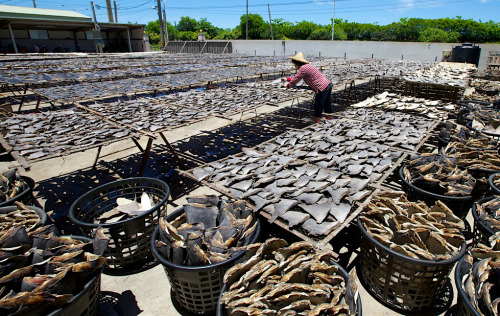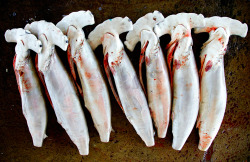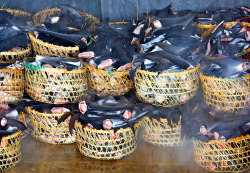Many in this part of the world enjoy shark fins soup. It is a delicacy especially in China, HongKong and Taiwan. When I was young and ignorant, I used to like it very much too. It is usually the 2nd dish of the traditional ten-course Chinese dinner. However, over the last decade or so, I have avoided ordering this dish and discourage others from consuming it because of the implications of overkilling the sharks and the cruelty of this trade.
The world's booming shark fin trade is killing up to 73 million sharks per year—about three times more than the official catch number reported to the United Nations, a new study concludes.
"The shark fin trade is notoriously secretive. But we were able to tap into fin auction records and convert from fin sizes and weights to whole shark equivalents to get a good handle on the actual numbers," said study leader Shelley Clarke, an American fisheries scientist who works in Hong Kong and Japan.
Fins are the most valuable parts of a shark and are used in shark fin soup, a delicacy served at Chinese weddings and business dinners in Southeast Asia and the Pacific Rim. Sharks are often still alive when their fins are sliced off, and their bodies are thrown back into the sea.
Scientists worry that the demand for shark fins could soon outpace the abilities of sharks to reproduce. This is probably already happening for one species, the blue shark, the researchers say. Their findings suggest that the current trade in blue sharks is close to or possibly even exceeding the species' maximum yield levels.
Data for other shark species is less complete, but the researchers think a similar thing might be happening to them as well.
"It is quite likely that sustainable catch levels have already been exceeded in some cases," Clarke said.
The overfishing of sharks could have serious effects for the entire marine food chain in some ecosystems.
Another recent study found that removing sharks from a reef environment in the Caribbean had a trickling effect on other species. Without sharks, carnivorous fish that the sharks usually fed on thrived. The carnivorous fish, in turn, preyed on parrotfish that kept the corals clean.
In time, the reefs changed from one dominated by coral to one overrun by algae.
The overfishing of sharks could have serious effects for the entire marine food chain in some ecosystems.
Another recent study found that removing sharks from a reef environment in the Caribbean had a trickling effect on other species. Without sharks, carnivorous fish that the sharks usually fed on thrived. The carnivorous fish, in turn, preyed on parrotfish that kept the corals clean.
In time, the reefs changed from one dominated by coral to one overrun by algae.







No comments:
Post a Comment